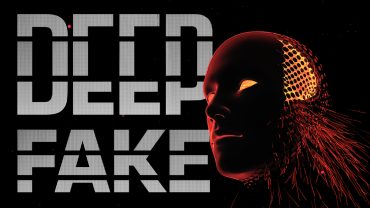
In this week’s real-time analytics news: Announcements from the Snowflake Summit 2023 and the Data+AI by Databricks conference dominated the week’s news.
Keeping pace with news and developments in the real-time analytics market can be a daunting task. Fortunately, we have you covered with a summary of the items our staff comes across each week. And if you prefer it in your inbox, sign up here!
News items this week were dominated by announcements from two major conferences, the Snowflake Summit 2023 and Data+AI by Databricks. Here are some of the items from these two events, plus our regular roundup of news from the real-time analytics industry.
Snowflake Summit 2023
Snowflake and its partners made numerous announcements at this week’s Snowflake Summit 2023. One announcement that will impact many is that the Snowflake Native App Framework (public preview on AWS) is now available for developers to build and test Snowflake Native Apps. There are over 25 new Snowflake Native Apps now available for customers to install from Snowflake Marketplace.
Another is that the company announced an expanded partnership with Microsoft, enabling new product integrations across AI, low code/no code application development, data governance, and more. The two companies will also implement new programs to enhance joint go-to-market strategies and improve field collaboration, bringing joint solutions directly to customers.
Other announcements included:
Snowflake and NVIDIA announced that they are partnering to provide businesses an accelerated path to create customized generative AI applications using their own proprietary data, all securely within the Snowflake Data Cloud. With the NVIDIA NeMo platform for developing large language models (LLMs) and NVIDIA GPU-accelerated computing, Snowflake will enable enterprises to use data in their Snowflake accounts to make custom LLMs for advanced generative AI services, including chatbots, search, and summarization.
Alation announced the launch of the Open Data Quality Framework to bring best-of-breed data quality and data observability capabilities to the Snowflake Data Cloud. Launch partners include Acceldata, Anomalo, Bigeye, Datactics, Experian, FirstEigen, Lightup, and Soda.
ALTR announced the expansion of its SaaS data access control and tokenization solution with Snowflake. The solution has a format-preserving data protection module running natively on Snowpark, Snowflake’s development framework, providing better security, faster results on queries that need detokenization, cost efficiencies, and additional use cases for data sharing through easy tokenization of sensitive data.
Alteryx announced its Snowflake Partner Connect integration and additional cloud product capabilities. To that end, Snowflake and Alteryx are removing friction and simplifying the stack. The new product innovations enable users to drive analytic insights more efficiently than ever with direct access to the Alteryx Analytics Cloud Platform through Snowflake.
Amplitude announced the launch of Snowflake-native Amplitude, a Snowflake Native App that utilizes Snowpark Container Services. The Snowflake Native App allows joint customers to access self-serve behavioral insights directly within their Snowflake instance. With the app, joint customers can unlock additional value from their data by empowering their entire organization with access to self-serve insights from Amplitude — all without leaving their Snowflake instance.
BigID announced the launch of its privacy and security-connected application. The connected application enables customers to accelerate security analytics within the Snowflake Data Cloud for faster data risk identification and mitigation.
Calibo announced the launch of Data Intelligence Studio. Data Intelligence Studio will allow customers to leverage intelligent infrastructure and an elastic performance engine to accelerate end-to-end digital product development and data engineering capabilities by improving the productivity of developers and data engineers.
Census announced the launch of new features that empower users to activate data using Python to run complex data transformation models on Snowflake. Developed using Snowflake’s Snowpark API for Python, the new Census features give users the ability to run advanced Python models on Snowflake by eliminating complex data pipelines and processing.
Coalesce announced upcoming collaborative features that help data teams transform data faster at any scale. Built for the Snowflake Data Cloud, Coalesce focuses on the “T” in the ELT data management process. The latest platform upgrades include a new feature called “Projects,” which organizes data transformation pipelines into distinct workspaces within Coalesce. Over the next few months, customers will be able to share transformed data and track its evolution across projects.
Cybersyn announced the launch of the Financial & Economic Essentials App and eCommerce Benchmarks App, two Snowflake Native Apps on Snowflake Marketplace. The eCommerce Benchmarks App is native to the Snowflake Data Cloud that equips decision-makers with detailed data to help in their markets. The Financial & Economic Essentials App is also a Snowflake Native App that provides a holistic view of the current state of the U.S. financial industry.
data.world announced an integration with Snowpark, the developer framework for Snowflake. Through the integration, data.world provides data catalog, data governance, and DataOps applications that help Snowflake customers accelerate Snowpark migrations and govern Snowpark metadata.
DQLabs announced the launch of DQLabs’ Modern Data Quality Platform, Powered by Snowflake. The new solution will enable customers to deliver reliable and accurate data to customers for better business outcomes by automating business quality checks and resolution using an AI/ML-powered semantic layer to deliver “fit-for-purpose” data for consumption across reporting and analytics.
Immuta announced platform enhancements to deliver simplified data security and monitoring in Snowflake so that joint customers can unlock more value, reduce costs, and speed up innovation. These new features include strengthened data mesh support, enhanced security for AI workloads in Snowpark, and advanced Data Security Posture Management (DSPM).
Informatica announced the launch of four new product capabilities to bring greater simplicity, speed, and performance to data integration and replication for customers in the Snowflake ecosystem. The new capabilities include Informatica Superpipe for Snowflake, Enterprise Data Integrator Snowflake native application, Cloud Data Integration-Free for Snowflake, and support for Apache Iceberg on Snowflake.
Kumo announced that it can now run deep learning directly in the Data Cloud with Snowpark Container Services. The services allow joint customers to seamlessly deploy the Kumo AI platform within Snowflake’s secure, managed infrastructure. The end-to-end integration allows Kumo to operate directly on raw Snowflake tables, generate predictions, and then store them back into Snowflake as additional tables.
Matillion announced a Productivity Platform for Data Teams. The Matillion Data Productivity Cloud empowers all practitioners, from low-code users to dbt developers, to engineer their data’s movement, transformation, and orchestration at an unprecedented scale. The platform provides a best-in-class experience for data teams to collaborate via low-code and high-code frameworks that unify every workload across a cloud data infrastructure.
Nexla announced the launch of a new solution that will accelerate the deployment and streamline the operation of their data clean rooms, which are based on the Snowflake Global Data Clean Room framework. This expands Nexla’s robust data integration and data product capabilities for businesses to securely share data with external parties at scale.
NowVertical Group announced the availability of NOW SnowGraph (”SnowGraph”), a Snowflake Native App on Snowflake Marketplace. NOW SnowGraph is an updated version of its original Snowflake Native App that powers rich insights using embedded graph analytics on top of a Snowflake warehouse.
RelationalAI announced the preview availability of its AI coprocessor that runs securely in the Snowflake Data Cloud with Snowpark Container Services (private preview). RelationalAI’s relational knowledge graph system brings integrated support for graph analytics, reasoning, optimization, and other composite AI workloads to the Data Cloud, enabling better business decisions for customers.
RudderStack announced the release of RudderStack Profiles for Snowflake customers. RudderStack Profiles enables data teams to quickly build complete customer profiles in their warehouse, generate user features, and activate them to deliver powerful customer experiences.
SAS revealed that SAS can now provision SAS Viya AI and decisioning capabilities securely in the Snowflake Data Cloud with Snowpark Container Services (private preview). Snowpark Container Services will enable SAS to provision SAS Viya to hundreds of existing joint customers and to prospective customers looking to make the most out of their data.
StreamSets, a Software AG company, announced the latest release of Transformer for Snowflake, the StreamSets platform’s data transformation service for the Snowflake Data Cloud. The latest release improves user productivity, simplifies complex data transformations, and enables self-service for advanced analytics using Snowflake.
Tamr announced the launch of Tamr Smart Curation, a Snowflake Native App on Snowflake Marketplace. Tamr and Snowflake’s joint customers can now alert users to potential data quality issues directly in Snowflake and feed the resolutions back into their data products with ease, strengthening trust in the data and improving overall efficiency.
Data+AI Summit by Databricks
Databricks made several announcements before the conference, including the introduction of its Lakehouse Apps. Read more about them in last week’s RTInsights roundup. The company and its partners followed up with more news this week, including:
Databricks announced LakehouseIQ, a knowledge engine that learns what makes an organization’s data, culture, and operations unique. LakehouseIQ uses generative AI to understand jargon, data usage patterns, organizational structure, and more to answer questions within the context of a business. LakehouseIQ is fully integrated with Databricks Unity Catalog to help ensure that democratizing access to data adheres to internal security and governance rules.
Databricks announced it has entered into a definitive agreement to acquire MosaicML. Together, Databricks and MosaicML will make generative AI more accessible to organizations, enabling them to build, own, and secure generative AI models with their own data.
Partner and other announcements made in conjunction with the conference included:
Anomalo announced that it has expanded its platform to include metadata-based observability for all tables in an enterprise data warehouse. Enterprises can now do basic monitoring of the entire data warehouse in minutes and at low cost and use that as a pathway into deep data quality monitoring to identify issues with the contents of their data.
BigID announced an expanded partnership with Databricks to provide data security, privacy, and governance solutions to customers. To that end, BigID’s integration with Databricks Unity Catalog facilitates bi-directional metadata synchronization and advanced access control. The collaboration empowers Databricks’ Unity Catalog customers with comprehensive visibility into their data’s sensitivity, allowing the policy engine to implement effective security and governance measures.
Crux announced that the company has expanded its partnership with Databricks, adding pre-integration services to its existing Partner Connect integration. To that end, Crux worked with its extensive data provider network to make 75 data sources available for consumption in the Databricks Marketplace, efficiently supplying datasets to meet the growing demand for data-driven insights where and when it’s needed most.
Esri announced it has partnered with Databricks. The collaboration will provide users with the advanced spatial analytics capabilities of Esri’s ArcGIS software, easily accessible in Databricks’ big data platform, the Databricks Lakehouse Platform. Esri offerings that integrate with the Databricks Lakehouse Platform include ArcGIS GeoAnalytics Engine and Big Data Toolkit, which are built specifically to enable users to perform spatial analysis on big datasets.
Immuta announced enhancements to its Data Security Platform for Databricks that enable data teams to leverage Immuta’s full platform capabilities letting users unlock value from data while maintaining a strong data security posture. The updates include a new native integration with Databricks Unity Catalog that connects customers with Immuta’s latest platform capabilities providing localized Sensitive Data Discovery, enhanced security, access control for artificial intelligence (AI) workloads, and enhanced Data Security Posture Management.
Qlik announced it has significantly enhanced its ability to help customers increase the value of their investments in Databricks Lakehouse with its recent acquisition of Talend and the launch of Qlik Cloud data transformation services. Specifically, Qlik’s data integration and analytics solutions, when combined with Talend’s cloud data quality and transformation capabilities, create a portfolio of solutions that help Databricks customers scale their ability to find, transform, trust, and analyze data.
Real-time analytics news in brief
Airtable announced it is launching a customer beta program and expanding access to Airtable AI, which allows users to deploy AI-powered applications for the enterprise. Beta customers will be able to experiment with and embed new AI capabilities in their data and workflows and provide valuable insights for Airtable’s roadmap, building on those the company gained during a limited alpha program and its own internal use of Airtable AI.
Anaconda announced the alpha release of an AI-powered tool called Anaconda Assistant. The tool provides a familiar chat-box interface and enhances the Jupyter Notebook coding experience by leveraging the latest in AI to instantly accomplish data tasks like generating plots, describing data frames, generating code snippets, debugging errors, and asking follow-up questions.
BMC launched BMC Automated Mainframe Intelligence (AMI) Cloud, a new product portfolio to help customers reimagine mainframe data management across the hybrid IT landscape, including public and private clouds. By unlocking their mission-critical data, organizations gain increased business intelligence to make better decisions with greater security, flexibility, scalability, and efficiency.
Cloudera announced an expansion of its Open Data Lakehouse offerings enabling customers to have a foundation for analytic and AI capabilities in their enterprises for all their data – in the cloud and now on-premises. In this offering, Cloudera is announcing support for Apache Iceberg for CDP-Private Cloud, available now as a tech preview and with General Availability later this summer.
Directus introduced a new functionality within its open data platform that enables front-end developers to build real-time capabilities into their applications via WebSockets. This update means that developers using Directus can now easily integrate up-to-the-second features into their applications and unlock new potential use cases for real-time experiences, ranging from instant messaging to live updates and notifications, real-time analytics and monitoring, IoT applications, and countless other possibilities.
Dremio announced new features that enhance the performance and versatility of its data platform. Among the key features unveiled are querying, performance, and compatibility enhancements that include effortless Iceberg table optimization, better data compression, tabular UDFs, new mapping SQL functions, and enhanced Delta Lake support.
Fortanix announced the release of Fortanix Confidential Data Search, a high-performance solution that supports highly scalable searches in encrypted databases with sensitive data without compromising data security or privacy regulations. Available now as a private preview, the fully featured general availability of Fortanix Confidential Data Search is targeted to roll out in the second half of 2023.
HiveMQ announced the HiveMQ Cloud Starter plan, a dedicated, fully-managed, self-service MQTT platform. HiveMQ Cloud allows customers to rapidly procure a production-ready MQTT platform based on hourly usage, with unlimited connections and devices. With HiveMQ Cloud, companies can develop, test, deploy, and scale production IoT use cases without the large investment and complexity of maintaining their own infrastructure.
Jitterbit announced the latest version of Vinyl, a low-code application development platform to accelerate digital transformation initiatives. Vinyl enables full-stack and citizen developers alike to create powerful, end-to-end, enterprise-grade applications—no code required. This latest version of Vinyl introduces several innovative features that speed up enterprise application development and simplify the process of creating and adding elements in app development.
Memphis.dev introduced Memphis Cloud, which builds on the Memphis open source project to enable a full serverless experience for enterprises with added security and features that provide easy-to-deploy, stateless stream processing at scale. These include the Augmentation of Kafka clusters, built-in schema management, enforcement, and transformation; multi-tenancy for traffic isolation; use-based billing and true multi-cloud capabilities.
Mendix, a Siemens business, announced the general availability of Mendix 10, its low-code platform. Mendix 10 introduces a host of innovations that empower organizations to meet the demand for software by enabling shifts in enterprise-wide digital solution delivery. Mendix 10 also includes the latest AI and machine learning capabilities; new tools to foster business-IT collaboration; a streamlined developer experience; expansion of cloud deployment options; and a modern approach to governance and control.
Oracle announced the addition of generative AI-powered capabilities within Oracle Fusion Cloud Human Capital Management (HCM). Supported by the Oracle Cloud Infrastructure (OCI) generative AI service, the new capabilities are embedded in existing HR processes to drive faster business value, improve productivity, enhance the candidate and employee experience, and streamline HR processes.
Provectus announced the v0.14 release of its Open-Source Data Discovery (ODD) and Observability Platform. In this release, the team has unveiled intuitive directory structures, a convenient domain start page, expanded business term attachments, an overview of redesigned data entity groups, a broadened integration section, and critical security upgrades — to transform data management into a simpler, more efficient, and more secure process.
RELEX Solutions has developed a new AI tool, RELEX-GPT, leveraging the same AI models as ChatGPT but in a secure enterprise setting and with access to RELEX’s rich proprietary knowledge base. RELEX-GPT serves as a knowledge hub streamlining access to information about RELEX products and facilitating more efficient workflows across teams. In addition, the tool clarifies concepts and answers complex questions.
Reltio announced new ML capabilities with its rollout of the Reltio Connected Data Platform 2023.2 release. Reltio’s technology focus in its 2023.2 release is on Entity Resolution – widely considered one of the most complex of all MDM challenges. Reltio has augmented entity resolution capabilities with the industry’s first pre-trained ML models.
RisingWave Labs announced the general availability of RisingWave Cloud, a fully managed SQL stream processing platform built on a cloud-native architecture. RisingWave Cloud consumes streaming data, performs incremental computations when new data comes in, and updates results dynamically at a fraction of the cost compared to Apache Flink.
Scribble Data announced the launch of Hasper, a full–stack large language model (LLM)-based engine for business leaders to rapidly build AI-powered data products. Hasper provides engineering guardrails to bring the power of LLMs to enterprises, enabling streamlined data workflows and facilitating contextually rich insights.
Soda has launched SodaGPT, a Generative AI (GenAI) powered tool for data quality, enabling a no-code self-serve approach for users of all backgrounds to naturally express and define data quality expectations. Available in preview, SodaGPT combines the domain-specific language capabilities of SodaCL with the natural language processing power of GenAI to provide a single platform for data consumers and data engineers to work together to produce data that can be trusted and used by everyone.
Speakeasy emerged from stealth with a platform that creates all the interfaces an API needs in minutes. With Speakeasy, API developers can generate all the critical interfaces that make integrating with an API easy – from native language client SDKs, HashiCorp Terraform Providers, and CLIs to LLM Agents that enable natural language API access. Speakeasy also enables API producers to offer advanced self-service capabilities to users, such as authentication, request replay and capture, and API schema insight and evolution.
Tabnine announced it is extending its AI-powered assistant for developer platform with Tabnine Chat, an AI code assistant that writes code and answers questions against organizations’ codebase. Built with security at the forefront, Tabnine Chat combines the latest large language models (LLMs) with codebase familiarity to transform organizations’ entire software development experience and help developers create business outcomes faster.
Partnerships, collaborations, and more
IBM announced that it has entered into a definitive agreement to purchase Apptio for $4.6 billion. The acquisition of Apptio will accelerate the advancement of IBM’s IT automation capabilities and enable enterprise leaders to deliver enhanced business value across technology investments.
In related news, Apptio announced its most recent integration with Oracle Cloud Infrastructure (OCI) to help customers understand, visualize, and optimize their cloud environments through direct access to Apptio’s Cloudability suite of products. With Apptio’s cloud cost management expertise running alongside OCI’s services, organizations will have a better lens into their OCI investments and support business growth through their OCI environments.
And in more related news, Stratascale, a subsidiary of SHI International, and Apptio announced a collaboration to bring rapid and continuous FinOps and GreenOps services to Fortune 1000 clients.
Aerospike announced that it has been selected for the HPE Complete program from Hewlett Packard Enterprise (HPE). The move expands Aerospike’s partnership with HPE and allows customers to acquire Aerospike software directly from HPE and its authorized partners. As part of new HPE Solutions with Aerospike, the Aerospike Real-time Data Platform, has been rigorously tested and validated with the HPE Alletra 4110 data storage server, providing an industry-leading real-time data platform solution.
Asimily announced an integration between Asimily and CCM (Capital Cycle Management) from HANDLE Global. The new integration of Asimily with CCM provides a single platform where healthcare system supply chain, security, and IT teams gain a holistic and always-current view of their organization’s internet-connected assets. This equipment visibility enables organizations to determine which assets or manufacturers are at risk of cybersecurity issues.
AtScale announced a referral partnership with Dataiku to help speed enterprise artificial intelligence (AI) adoption and empower companies to create business value from their data. By combining Dataiku’s single data and AI platform with AtScale’s universal semantic layer and AI-Link, organizations will be able to improve data science productivity with business-vetted features for AI model training and feature management.
Boomi announced that the Boomi platform, an integration platform as a service (iPaaS), is available as an Intelligent Automation solution in AWS Marketplace. With the low-code platform, AWS customers can accelerate their automation initiatives by seamlessly connecting and integrating enterprise-wide data sources, applications, and systems, both on-premises and on the cloud.
ClearObject announced an expanded partnership with Google Cloud to develop new GenAI service offerings for its customers. The partnership will accelerate ClearObject’s Generative AI strategy, bringing new AI-powered solutions and experiences to customers.
Cognizant and ServiceNow announced a strategic partnership to advance the adoption of AI-driven automation across industries. To that end, Cognizant’s ServiceNow Business Group will help joint clients challenged by rising costs, growing tech debt, manual processes, and sub-optimal customer experiences deploy AI to help drive improvements by enriching operational effectiveness, enhancing user experience, and more.
Indico Data announced the launch of its integration with Microsoft Azure OpenAI Service to extend Indico’s Enterprise Large Language Model (LLM) capabilities. Already a partner with Microsoft, Indico is now deepening its relationship by leveraging the latest generative AI capabilities built on highly secure, enterprise-grade cloud technologies. The first product enhancements to be released will include the Indico Prompt Studio and Summarization Studio.
Keepit announced the launch of its new backup and recovery service for Microsoft Azure DevOps. To that end, Keepit safeguards DevOps workloads against large-scale disasters and provides its customers with comprehensive protection and quick recovery for Azure DevOps Boards and Pipelines data and metadata; protection for Azure boards; rapid restoration of critical continuous integration and CI/CD automations and Pipelines to a known-good state; and more.
Kyvos announced the availability of its Azure application with pay-as-you-go pricing. Microsoft Azure users can now easily create Kyvos service from Azure Marketplace. Kyvos’ smart pre-aggregation technology and semantic layer builds a single source of trusted data and enables intelligent, data-driven business decisions. The new on-demand and pay-as-you-go experience will allow quick use of the Kyvos analytics acceleration platform with just a few clicks on the Azure console using an existing Azure subscription.
Moody’s Corporation and Microsoft announced a new strategic partnership to deliver next-generation data, analytics, research, collaboration, and risk solutions for financial services and global knowledge workers. Built on a combination of Moody’s data and analytical capabilities and the power and scale of Microsoft Azure OpenAI Service, the partnership creates offerings that enhance insights into corporate intelligence and risk assessment.
ThoughtSpot announced that it has signed a definitive agreement to acquire Mode Analytics. By combining their respective technology as a versatile suite of analytical tools, the two companies are empowering data teams around the world to confidently transform business intelligence with generative AI and deliver value to the business quickly, securely, and at scale.
Yugabyte announced the public availability of YugabyteDB Managed on Microsoft Azure. With this update, organizations can deploy YugabyteDB as a fully managed database-as-a-service on all three major public cloud providers. The service is available in over 66 regions worldwide, including 15 Azure regions.
If your company has real-time analytics news, send your announcements to [email protected].
In case you missed it, here are our most recent previous weekly real-time analytics news roundups:



























